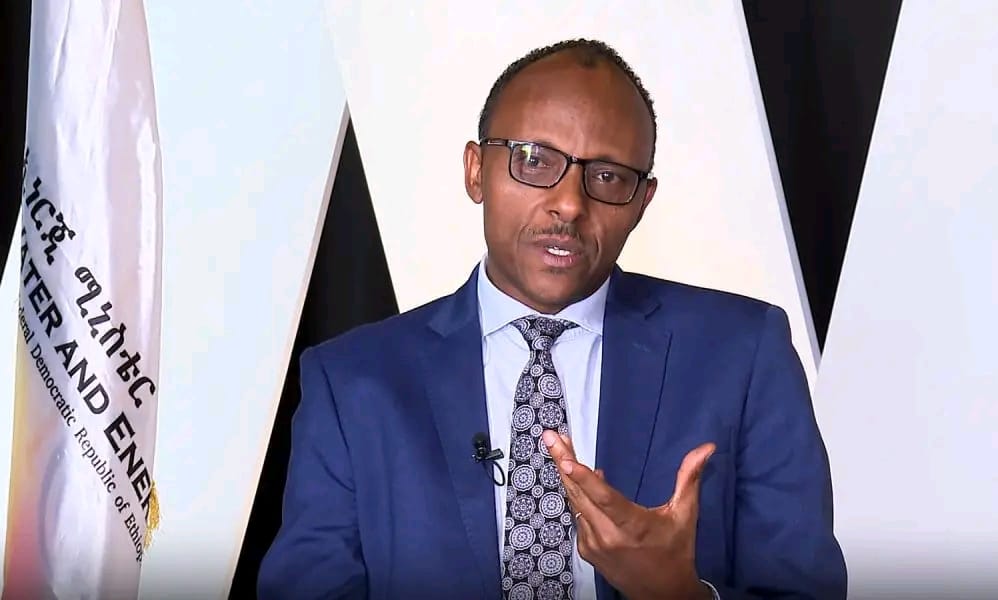By TESFA-ALEM TEKLE
Ethiopia’s Minister of Water and Energy, accuses Egypt of launching a “diplomatic campaign” to prevent Ethiopia from selling electricity to neighboring countries.
The Minister, Mr. Habtamu Itefa, made the remarks at a citizens’ consultation forum held at the House of People’s Representatives, attended by scholars and other stakeholders which discussed on national, regional, and continental issues.
According to the Minister, the Egyptians are working to sabotage Ethiopia’s plans to become a regional power hub.
“Despite Ethiopia’s master plan to connect the eastern and southern regions through the East African Power Pool, the Egyptians however are taking various actions to prevent Ethiopia from selling its power to various African countries” said Mr. Habtamu.
He claimed that there are campaigns aimed at moving the “Market Center”, an institution that determines the price of power, from Addis Ababa to Entebbe, Uganda.
“This is to prevent the increase in the amount of power Ethiopia sells to Kenya and to prevent power from going to Tanzania”
The Minister added that the move by Egypt to prevent the sale of power requires diplomatic efforts on the part of Ethiopia.
“Since this is a matter of interest, all members of the parliament and the executive body should take up the issue and work on it, and since there is a possibility of sabotage after the power is generated, it is necessary to work together on this matter” he added.
The Minister stressed a need for Ethiopia to exploit as much from its water resources.
“Therefore, to increase our capacity, it is necessary to build more dams” he said adding “If we want to see the height of Ethiopia, we must use our water resources as much as possible, and for this we need more budget and support.”
The long-standing dispute between Egypt and Ethiopia over the Grand Ethiopian Renaissance Dam (GERD) which the latter is constructing on the Nile River escalated recently after Cairo lodged a fresh complaint letter to the UN security council.
Both countries has repeatedly been presenting conflicting claims at the United Nations.
Egypt has reiterated its opposition to Ethiopia’s actions, particularly its unilateral filling of the dam, which Cairo argues threatens regional stability and violates previous agreements.
Egypt’s Foreign Minister, Badr Abdelatty, emphasized that Ethiopia’s actions could have severe consequences for downstream countries reliant on the Nile.
In response, Ethiopia has rejected Egypt’s concerns, dismissing them as “unfounded allegations” and accused Cairo of obstructing progress with its hardline positions.
Ethiopia also accused Egypt of attempting to maintain its historical dominance over the Nile, a critical water source for both nations.
This disputes, which has been ongoing for over a decade, underscores the broader tensions over water rights and the equitable use of the Nile, with both countries asserting their interests on dam and other projects.
